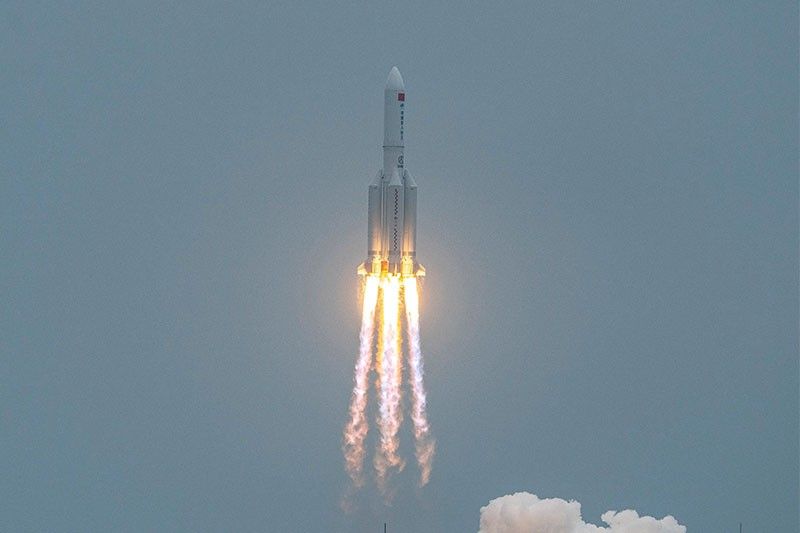PhilSA: Report potential sightings of Chinese rocket debris for proper retrieval

MANILA, Philippines ?— The public should inform local authorities but should otherwise stay away from floating debris that may have been part of a Chinese Long March 5B rocket that fell into the Sulu Sea near Palawan on Sunday, the Philippine Space Agency said Monday.
In a statement, PhilSA said that it monitored the launch of the rocket and the re-entry of its debris. It said that it also issued an advisory to government agencies about the launch and the areas where debris might fall.
"Teams have been mobilized and prepared to implement coordination protocols with other national government agencies for the issuance of actionable information as necessary, during the debris re-entry on [July 31]," PhilSA said.
Rocket components are expected to have disintegrated during re-entry but PhilSA advised the public to report sightings of what could be fragments from the Long March 5B rocket. "PhilSA also cautions everyone against retrieving or coming in close contact with these materials."
US Space Command and the China Manned Space Agency confirmed the re-entry of the rocket, with China saying the impact area was in the Sulu Sea, 57 kilometers off the east coast of Palawan Island.
NASA on Sunday chided China for not giving other nations details of the re-entry, saying potential debris from the rocket "carry a significant risk of loss of life and property."
'Responsible spacefaring'
In its statement on Monday, PhilSA said that "spacefaring nations must abide by the protocols and mechanisms enshrined in the UN Outer Space Treaty, encourage close coordination, and timely resolution of issues such as space debris mitigation."
"This will eliminate the potential damage, harm or injury, or even loss of life on Earth."
PhilSA said that it has submitted to the Department of Foreign Affairs instruments for the ratification of two United Nations treaties related to outer space, the Liability Convention and the Registration Convention.
The 1974 Registration Convention requires signatories to log space objects it has launched into a registry while the 1971 Liability Convention holds launching nations liable for damage that its space objects cause on Earth or to aircraft.
"These conventions promote accountability among nations for objects launched to space," the agency said, adding the treaties would be brought to the Palace for President Ferdinand Marcos Jr.'s consideration.
- Latest
- Trending































